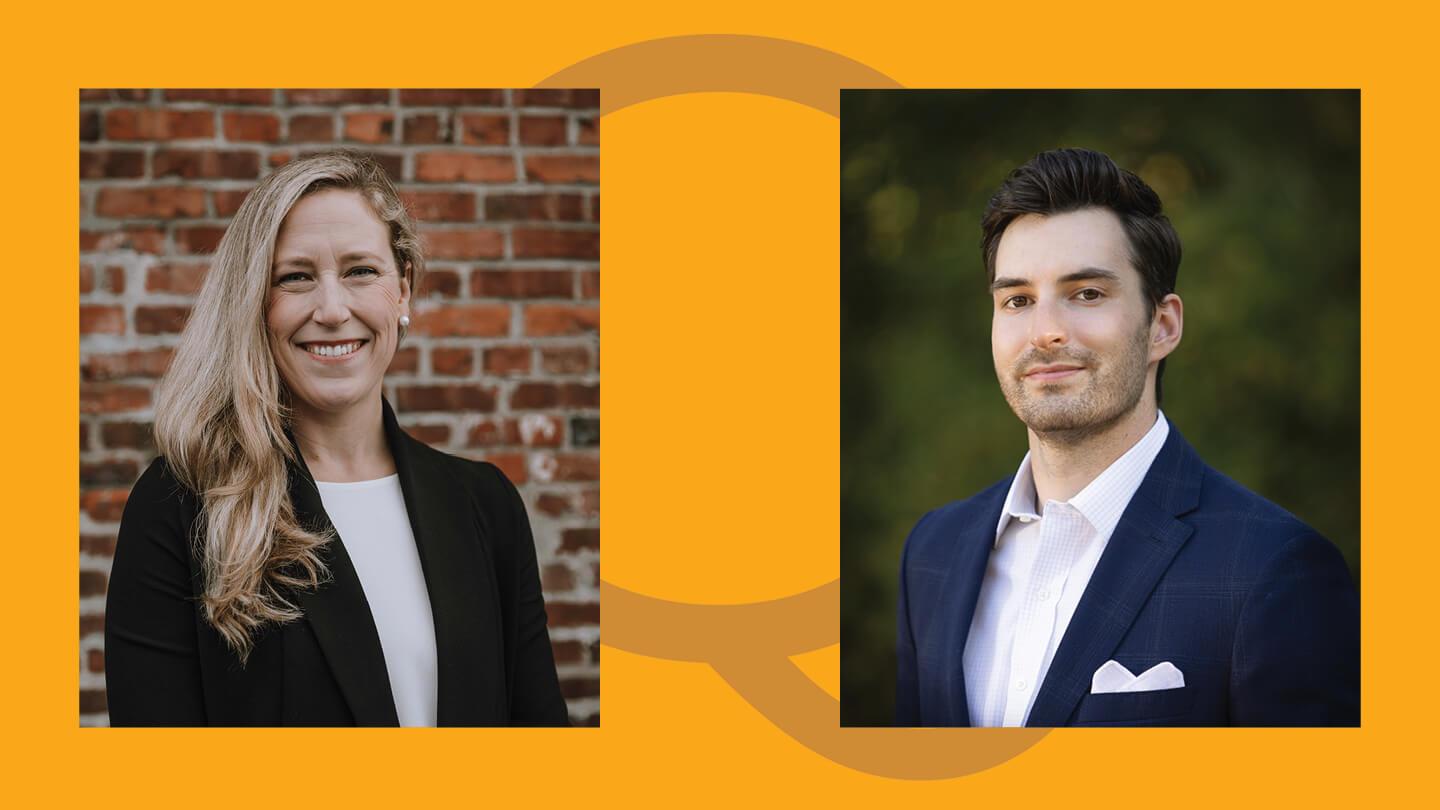EQuipped for the workplace

The World Economic Forum has listed it as one of the top 10 skills to master to ensure long-term business success. It’s a key behaviour demonstrated in 90 per cent of top business performers and it even increases earning potential; and yet it’s also believed to be the hardest (and most uncomfortable) skill to master, because it requires you to dig deep within yourself.
That skill is emotional intelligence, also known as EQ. While the term was originally coined back in 1990 in a research paper by two psychology professors, it has taken more than a decade of further research to better understand why EQ is one of today’s critical business skills.
EQ has always been a part of classroom learning at Gustavson, but in September 2020 Gustavson and the Business Co-op and Career Centre— with generous support from the RBC Foundation—launched a two-year pilot program called Career EQuip to shine a spotlight on EQ, enhancing program delivery through the integration of emotional intelligence tools and career development best practices.
“The program came about because we felt we could do more to proactively support the career and EQ development of our students,” says Andrée-Anne Leroy, Gustavson career educator and project lead for Career EQuip. “We wanted to give them the opportunity to differentiate themselves from other students entering the market, and to feel ready and competent to launch themselves into a career that is meaningful to them.”
How it works
Second-year business students are randomly selected to be a part of the program, which is delivered by instructors trained as practitioners in the Emotional Capital Report (a UK-based intelligence tool used within educational establishments and designed to measure an individual’s emotional intelligence that builds career readiness).Through the program, students learn to develop the following areas: self-awareness around their unique strengths, interests, values and skills; a better understanding of labour market trends and the skills needed to be “future ready;” an understanding of the value of emotional intelligence as a key area for skill development; and the ability to identify opportunities to develop EQ competencies by building goals and an action plan.
So far, 100 students have gone through the program, and in the 2021/2022 academic year 125 students will have the opportunity to further their EQ and career readiness skills through the through the Career EQuip program.
Student successes
Determining the program’s success and the exact change in student’s emotional intelligence, career readiness and confidence will come later, but a mid-point evaluation has already yielded very positive results.“We have observed that a higher number of students within Career EQuip have successfully pursued their co-op term this summer, and the quality of those co-op terms has been higher. We can already see positive shifts in their understanding of the importance of social and emotional skill development for career outcomes—something many of our students are usually unaware of at this stage,” says Leroy.
“The Career EQuip program definitely helped me develop my career readiness,” says Sydney Woods, a third-year BCom student who has been involved in the program for the last year. “The learning and skill building opportunities allowed me to feel more confident going into my summer job search as I was able to better articulate how I could be an asset on teams in different organizations. Tools like the Roche Martin EQ assessment allowed me to gain insight to my strengths and weaknesses that I wouldn’t have known otherwise. Knowledge I was able to use in my job search and eventual interviews to secure a job.”
Hayden Gray, BCom ’18, associate at RBC Dominion Securities and RBC’s local youth champion, who is actively involved in Career EQuip, agrees. He says, “Seeing the confidence change in the students in one year has been amazing. Listening to student stories and seeing their transformation has been impactful and demonstrates the importance of this program.”
Gray, a Gustavson alumnus, has a unique perspective on the program and sees its many benefits. “When I was starting my career I was like a fish out of water—emotional intelligence wasn’t something I was thinking about. You don’t often give yourself space to examine EQ because you are so focused on other goals. But developing these competencies early on—the importance of building trust with people, to be relatable and not get defensive—make you better equipped to handle those ‘shades of grey’ because nothing in business is ever black and white,” says Gray.
Donor support
For RBC, being actively involved in developing tomorrow’s leaders through support and resources is extremely important—and it’s why it has provided funding for Career EQuip and renewed its support for the flagship RBC Case Competition in 2021. “The workplace is shifting and changing drastically, so for us it’s about better preparing the future workforce of Canada,” says Gray.
As Leroy and Gray get ready for year two of the program, they are excited to further empower Canadian youth to be better prepared for the future. They are also excited that many of the events that were online due to the pandemic will now be conducted in person. Leroy adds that the wonder of this program is that it’s not a “one and done,” as students are paired with their instructors for the next three years to further develop those skills.
“We’ve seen in research that building awareness about what EQ skills are and why they are important can already put them at an advantage. While the impacts aren’t always immediate, building your EQ tool kit allows you to delve into it when you need it most, even if that’s five years from now. The benefits of better understanding EQ are long-term—not only to your career development, but your own personal well-being, which is especially relevant right now.”
—Natalie Bruckner. Photo courtesy of Andrée-Anne Leroy and Hayden Gray. Originally published in the Fall 2021 edition of Business Class magazine.

